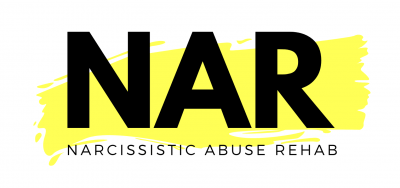Choosing to embark on the journey of sobriety is a courageous decision. Finding the right drug rehab facility is a crucial step in this process. In New Jersey, substance misuse continues to be a significant issue. Data reveals that there were 87,745 treatment admissions and 86,626 discharges in New Jersey for substance use in 2021.
Selecting the right rehab center can make all the difference in one’s recovery journey. With numerous options available, it’s essential to understand the key considerations when choosing a drug rehab in New Jersey. In this article, we explore key considerations for individuals and families seeking drug rehab in the Garden State.
Understanding the Need
New Jersey, like many other states in the U.S., faces a significant challenge concerning substance use. From opioids to alcohol and various other drugs, addiction affects individuals from all walks of life. According to New Jersey Monitor, drug overdoses killed almost 2,400 New Jersey residents in 2023 and 2,900 in 2022.
Moreover, the pervasive nature of addiction often leads to societal issues, including crime, unemployment, and homelessness. Many individuals struggling with substance misuse find themselves entangled in the criminal justice system, perpetuating a cycle of incarceration and relapse. Drug rehabilitation programs offer a pathway to break free from this cycle.
Given the severity of the issue, seeking professional help through drug rehab centers becomes imperative for those battling addiction. However, not all rehab facilities are created equal, and finding the right fit is crucial for successful recovery.
Key Considerations
There are several key factors to consider when considering drug rehab in New Jersey. This will help ensure you or your loved one receive the most effective and appropriate treatment. Here are some considerations:
Accreditation and Licensing
Accreditation and licensing play pivotal roles in ensuring the quality and reliability of drug rehab facilities in New Jersey. These processes establish standards that treatment centers must meet to ensure the safety and effectiveness of their programs.
Accreditation typically involves rigorous evaluations by independent organizations, verifying that the facility meets specific criteria for quality care. It indicates that the rehab center has undergone thorough assessments of its services, staff qualifications, treatment protocols, and safety measures.
On the other hand, licensing is typically issued by state regulatory bodies, ensuring that drug rehab facilities comply with state regulations. Licensing requirements vary from state to state but often involve facility cleanliness, staff credentials, treatment modalities, and patient rights protection.
Accreditation and licensing provide essential assurances of quality and legitimacy for individuals seeking drug rehab in New Jersey. Accredited facilities demonstrate a commitment to maintaining high standards of care, while licensed facilities adhere to state regulations designed to protect patients’ rights.
Treatment Approaches
Different individuals may respond better to various treatment approaches. Look for a drug rehab center in New Jersey that offers a range of evidence-based therapies tailored to meet individual needs.
As Rolling Hills Recovery Center states, a personalized approach is vital for ensuring optimal treatment and care. Evidence-based and customized treatment plans create a comfortable patient setting and enable treatment centers to guide each client personally.
A treatment plan can include various techniques, such as cognitive-behavioral therapy (CBT), motivational interviewing, group therapy, and holistic approaches. A comprehensive treatment plan that addresses physical, psychological, and emotional aspects is crucial for long-term recovery.
Psychiatric Times mentions that professionals would focus on two types of activities in CBT. One type of activity increases their level of proficiency in tasks that they either need or want to do. The second type of activity increases a person’s experience of pleasure without depending on substances.
You should also consider if the rehab center offers any personalized approaches for specific types of addiction. For instance, suppose you are struggling to quit drinking. In that case, finding a center for alcohol rehab in New Jersey would be the best choice.
Qualified Staff
In New Jersey, obtaining drug rehabilitation services is crucial for individuals struggling with substance abuse issues. However, the effectiveness of these programs heavily relies on the qualifications and expertise of the staff involved. Qualified staff members are pivotal in providing comprehensive care and support to those undergoing rehabilitation.
Overcoming addiction can be complex and challenging, requiring a multidisciplinary approach. Qualified staff typically include licensed therapists, counselors, medical professionals, and support staff trained to address the diverse needs of individuals in recovery. Their expertise allows them to develop personalized treatment plans tailored to each patient’s unique circumstances.
Qualified staff members possess the necessary skills to assess the severity of addiction, identify underlying issues, and formulate appropriate intervention strategies. They are adept at providing various therapeutic modalities to address the physical, psychological, and emotional aspects of addiction.
Dual Diagnosis Treatment
The dual diagnosis approach recognizes the intricate relationship between substance abuse disorders and co-occurring mental health conditions. Many scientific studies have already backed this conclusion. According to Medical News Today, around half of all people struggling with substance use disorder (SUD) also have depression.
This treatment acknowledges that addressing one without the other may not lead to sustainable recovery. Without addressing these issues concurrently, the risk of relapse remains high.
Look for a drug rehab center in New Jersey that offers dual diagnosis treatment, addressing both and co-occurring mental health issues simultaneously. Integrated treatment approaches can improve outcomes and reduce the risk of relapse.
Family Involvement
Family involvement is widely recognized as a crucial component in the process of drug rehabilitation, especially in New Jersey. Incorporating family members into the treatment plan can significantly enhance the effectiveness of rehab programs. Family members’ support, understanding, and involvement can greatly contribute to the success of the individual’s recovery journey.
When a person struggles with substance use, it doesn’t just affect them alone; it impacts the entire family unit. Family members often experience various emotions, such as fear, frustration, guilt, and helplessness. Involving them in the rehabilitation process provides them with a better understanding of addiction and equips them with the tools to support their loved ones.
Family therapy sessions are a common feature of drug rehab programs in New Jersey. These sessions provide a safe space for family members to express their concerns, communicate effectively, and learn healthy coping mechanisms. They also allow families to address any underlying issues or dysfunctional dynamics that may have contributed to the individual’s substance misuse.
Frequently Asked Questions
How Can I Determine if a Rehab Center in New Jersey Is Reputable?
Look for accreditation by organizations such as the Joint Commission or CARF. Additionally, read online reviews, seek recommendations from healthcare professionals, and inquire about the facility’s track record of successful outcomes.
What Types of Treatment Programs Are Available in Alcohol Rehabs in New Jersey?
Treatment programs may include detoxification, individual and group therapy, cognitive-behavioral therapy (CBT), medication-assisted treatment (MAT), holistic therapies, and relapse prevention strategies. The availability of these programs may vary between facilities.
What Should I Expect During the Admissions Process at a New Jersey Alcohol Rehab?
The admissions process typically involves an assessment of your medical history, substance use, and treatment needs. You may be required to undergo a physical examination and provide information about your insurance coverage or payment options. Once admitted, you’ll receive a personalized treatment plan.
To conclude, choosing the right drug rehab center in New Jersey is a critical decision that can significantly impact one’s journey to sobriety. By considering the factors mentioned above, individuals can make informed choices that align with their needs and preferences. Remember, recovery is possible, and seeking professional help is the first step towards a healthier, substance-free life.






